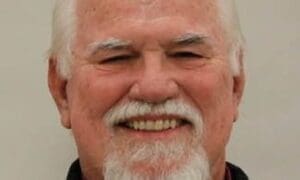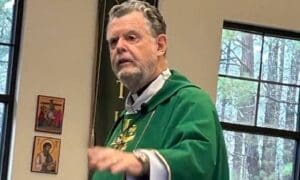As we prepare to celebrate the birthday of Dr. Martin Luther King Jr. this next week, I want to share with you some thoughts about his vision and his direct connection to the scriptures of The Holy Bible. I happen to believe that we cannot begin to understand the strength and conviction of his leadership toward racial equality in our country unless we see the underlying power of God’s Word in his life and work. I also happen to believe that he was profoundly correct in his use and application of scripture to the issue that burned in his soul.
As we look across the landscape of our current culture, we see so many leaders who are trying to take God out of the scenario, trying to take God’s Word out of the conversation, out of the dynamics of local and national and international problem solving. What a tragic mistake. What a disappointing sharp contrast to Dr. King. Some would see this only as a natural flow for him because he was a Christian preacher to start, but his conviction for God’s place and the place of God’s Word in all of life went far beyond simple preacher’s rhetoric.
Dr. David Lull, professor of New Testament Theology at Wartburg Lutheran Theological Seminary in Dubuque, Iowa, wrote an excellent little article for the “Bible Translation and Utilization” website in which he shares some of his finding from his extensive study on this matter. The article is entitled, “Remembering Martin Luther King Jr. – King’s Vision of Justice: Rooted in The Bible.” I share it with you here:
“As we celebrate the life of the Rev. Dr. Martin Luther King Jr., we remember how important the Bible was to him, and how deeply his vision of racial justice is rooted in the Judeo-Christian heritage. It was the Bible that led him to choose the more excellent way of love and nonviolent protest over hatred, despair and violence.
“Dr. King often pointed out that it was Jesus’ Sermon on the Mount that inspired the “dignified social action” of the civil rights movement. His notion of “creative suffering” — borne by civil rights activists who endured persecution and police brutality — came from his Christian faith in the redemptive suffering of Jesus.
“Dr. King dreamed of a day when America lives up to its creed, when all people sit together at one table, and when freedom and justice reign. His famous “I have a dream” speech reaches its highest point with echoes of the prophet Isaiah: “I have a dream that one day every valley shall be exalted, every hill and mountain shall be made low … and the glory of the Lord shall be revealed, and all flesh shall see it together.”
“In words of the prophet Micah, he hoped that one day all persons elected to public office will “do justice, love kindness, and walk humbly with [their] God.” His hope for an end to war was rooted in Isaiah’s vision that people will “beat their swords into plowshares, and their spears into pruning hooks.” Biblical promises of “peace on earth and goodwill toward all” were Dr. King’s antidote to despair.
“To critics who accused him of being an extremist, Dr. King said that he stood in a long line of extremists, including the prophet Amos, Jesus, the apostle Paul, the Protestant reformer Martin Luther, Thomas Jefferson and Abraham Lincoln. For Dr. King, the question was what kind of extremists we will be — extremists for hate or for love, for injustice or for justice, for evil or for goodness.
“Dr. King’s commitment to the Bible as his primary source book was nourished in his childhood when Bible stories told around the dinner table held the King children in awe. Those stories sustained him until the end of his life.
“In what was to be his last speech, Dr. King drew from the biblical story of Moses: “Like anybody, I would like to live a long life … But I’m not concerned about that now. I just want to do God’s will. And He’s allowed me to go up to the mountain, and I’ve looked over, and I’ve seen the promised land. I may not get there with you, but I want you to know tonight that we as a people will get to the promised land.”
Amen! I pray that the truth of Dr. King’s biblical convictions, biblical roots, biblically-based courage and strength will be a part of our celebration as we remember him again this year.
—————–
Kollmeyer is senior pastor of Prince of Peace Lutheran Church in Fayetteville, located on Hwy. 314 between Lowe’s and The Pavilion. The “Contemporary Service” at 9:15 features dynamic worship with music led by the Praise Band, which has both professional and near-professional musicians. This service is less formal and also provides a “Kids’ Own Church” for a break-out during the sermon. The “Traditional Service” at 11:15 features the beauty and majesty of the pipe organ and choir and the singing of the great hymns of the faith. “Give us a try!” www.princeofpeacefayette.com or 770-461-3403.











Leave a Comment
You must be logged in to post a comment.